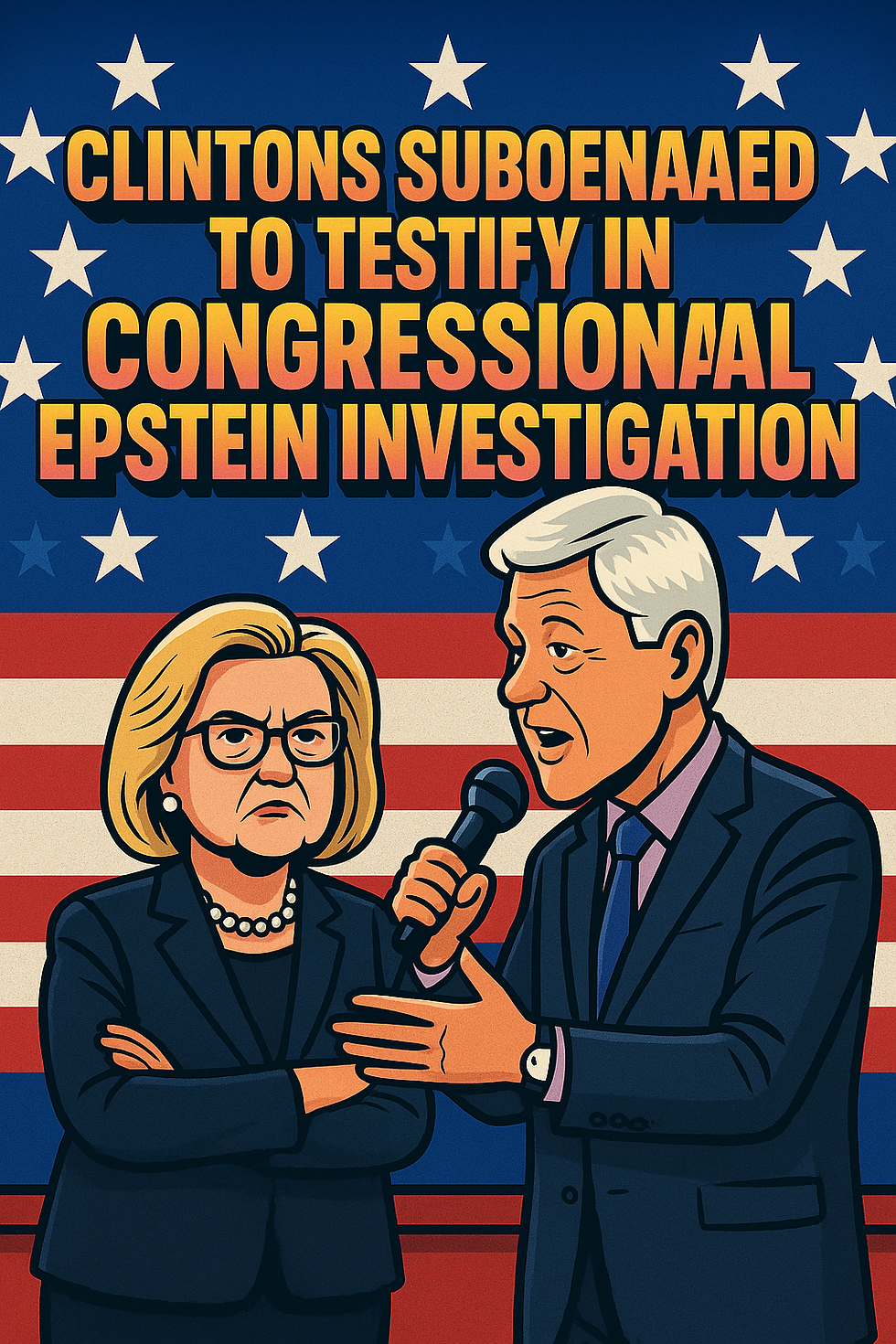House Oversight Committee Subpoenas DOJ and High-Profile Figures in Jeffrey Epstein Investigation
- JB Quinnon
- Aug 10, 2025
- 2 min read

House Oversight Committee Subpoenas DOJ and High-Profile Figures in Jeffrey Epstein Investigation
The U.S. House Oversight Committee has intensified its investigation into the Jeffrey Epstein case, issuing a new round of subpoenas aimed at uncovering the full scope of Epstein’s connections, legal agreements, and the circumstances surrounding his death.
The Republican-led committee has formally demanded that the Department of Justice (DOJ) hand over unredacted documents related to:
Epstein’s 2007 non-prosecution agreement in Florida
Federal indictments and investigations before and after his 2019 arrest
Communications regarding his death in federal custody
Any DOJ or White House correspondence related to Epstein
The DOJ has until August 19, 2025, to comply with these demands.
In an unprecedented move, subpoenas have also been sent to former President Bill Clinton, former Secretary of State Hillary Clinton, and several former Attorneys General and FBI directors. These individuals are being called to provide sworn depositions scheduled for October 2025.
While former President Clinton has acknowledged multiple interactions with Epstein—such as traveling on his private jet for philanthropic work—he has repeatedly denied knowing about Epstein’s criminal activity. Hillary Clinton has not publicly commented on the subpoena.
The investigation follows earlier testimony from
Ghislaine Maxwell, who allegedly supplied a list of around 100 individuals connected to Epstein’s network. These new subpoenas suggest the committee is pursuing a wide range of leads, potentially aiming to expose systemic failures in law enforcement oversight.
The political implications are significant. No former U.S. president has ever been compelled to testify under subpoena in a congressional inquiry, and legal experts note that enforcing such a demand would raise complex constitutional questions.
Whether these moves will result in greater transparency—or deepen partisan divides—remains to be seen. For now, the committee’s message is clear: the Epstein case is far from closed.





















Comments